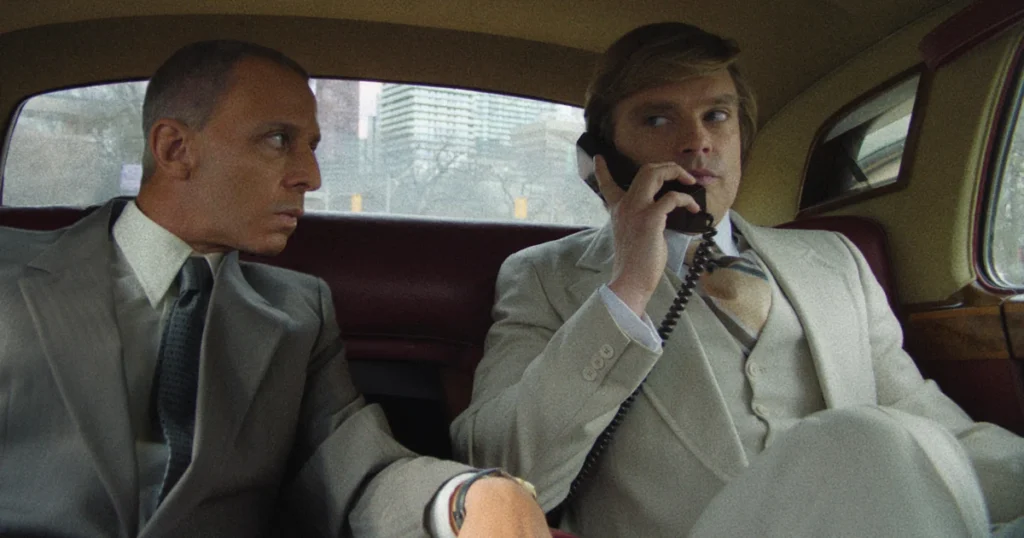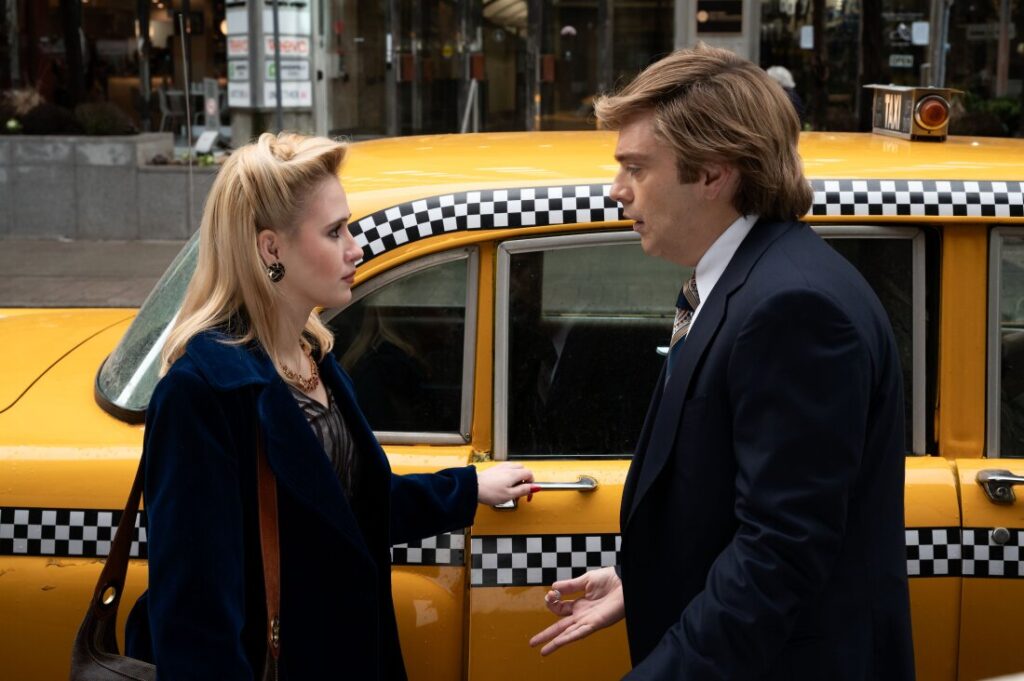How soon is too soon to make a movie about a president? “Lincoln” premiered 149 years after Honest Abe signed the Emancipation Proclamation; “W.” debuted the year George W. Bush became a lame duck; “Idiocracy” arrived 500 years before the prophesized presidency of Dwayne Elizondo Mountain Dew Herbert Camacho (Terry Crews).
Opting for an unhappy medium, Ali Abbasi, director of “The Apprentice,” has decided that with Donald Trump seeking a second term, the nation is in dire need of a movie about the Donald’s 1980’s heyday as a Manhattan real estate tycoon. Look at it this way: If Trump wins the election, the film will serve as a nice little preview of the racism, fascism, and misogyny that awaits us in the next four years. Super.
Being loath to spend a millisecond longer than necessary contemplating Trump, I almost didn’t review “The Apprentice.” But I felt compelled to watch the film because the major studios were too cowardly to touch it and because billionaire Trump backer Daniel Snyder—one of the film’s investors and the former owner of the Washington Commanders—nearly foiled its release.
I figured that if Snyder didn’t want us to see “The Apprentice,” it must be pretty damning—and it is. As played by Sebastian Stan, Trump is vain, stupid, disloyal, and devoid of human feeling. “I’m not attracted to you anymore,” Trump informs his wife Ivana (Maria Bakalova), which is a laugh, since Stan-as-Trump seems incapable of being attracted to anyone.
If “The Apprentice” convinces one American not to vote for Trump, it will have been worth making. Beyond that, it’s barely worth seeing. Abbasi, working from a screenplay by Gabriel Sherman, attempts the “Citizen Kane” of political biopics, but he’s wrong if he believes Trump’s sick soul can be unlocked with a Rosebud-esque key. (It’s no coincidence that a “Kane” poster makes a cameo; that film is the real Trump’s favorite.)
In “Citizen Kane,” one word couldn’t define Charles Foster Kane’s life. In “The Apprentice,” one name defines Trump’s: Roy Cohn. An architect of the Red Scare, Cohn served as Trump’s attorney, defending him during a 1973 federal lawsuit accusing the Trumps of refusing to rent to Black tenants. “The Apprentice” chronicles that scandal, arguing (persuasively) that Cohn was not only Trump’s lawyer, but his sensei in the art of relentless lying.

Cohn is embodied by Jeremy Strong (a.k.a. Kendall Roy on “Succession”), who impressed an unlikely reviewer: Roger Stone, the notorious Nixon operative and Trump adviser (who shows up in “The Apprentice” played by Mark Rendall, the voice of Arthur the Aardvark on the beloved PBS television show “Arthur”).
“The portrayal of Roy Cohn by actor Jeremy Strong in the new movie ‘The Apprentice’ is uncanny in it’s [sic] accuracy,” Stone marveled in a social media post. I guess that statement makes him the first film critic to have been indicted for obstruction, false statements, and witness tampering—not to mention his being sentenced to 40 months in prison (predictably, Trump pardoned Stone).
In 2021, The New Yorker published a profile of Strong that portrayed him as self-serious to the point of self-sabotage. “The Apprentice” does little to dispel that perception. Perhaps the real Cohn jutted his head outward like a chicken, but coming from Strong, this plays as a rehearsed tic designed to convey actorly devotion. Strong doesn’t play Cohn; he plays details.
Cohn was a profound contradiction: A gay man who battled on behalf of right-wing causes and died of AIDS. “What are you, some kind of faggot?” Cohn snaps when Trump begs him for help. Strong may not be convincing, but “The Apprentice” vividly paints Cohn as a man whose lived experiences existed in an entirely different universe than his political beliefs.
“The Apprentice” would be more compelling if Cohn were its protagonist. In fact, it would be more compelling if anyone besides Trump were its protagonist. Spoiled rich boys with daddy issues can destroy worlds, but that doesn’t make them interesting. In art and life alike, Trump is a remarkably dull man, a cinematic problem that not even Stan’s mesmerizing vacancy can solve.
That leaves us with a pedantic prequel that can’t resist laughably obvious bits of foreshadowing, like young Trump taking in the Ronald Reagan slogan—“Let’s make America great again”—that candidate Trump will later condense and co-opt. If only Justin Timberlake had shown up in a mid-credits scene as Steve Bannon and told Trump, “Drop the ‘let’s.’ It’s cleaner!”
“The Apprentice” was never going to be “Citizen Trump”; it has too much in common with the wobblier “Star Wars” films (alternative titles: “Trump: A Culture Wars Story” and “The Phantom Liposuction”). Supposedly, esteemed directors like Paul Thomas Anderson and Clint Eastwood turned the film down, which, if true, has resulted in a fitting revenge on Trump: the movie about him is nearly as mediocre as he is.



